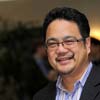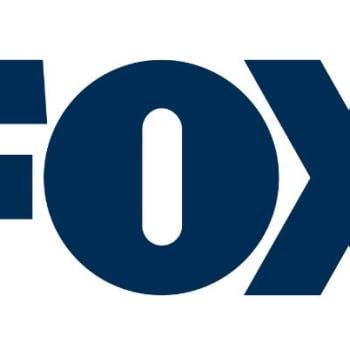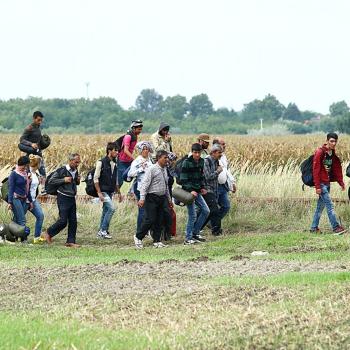 An interview with Bruce Reyes-Chow
An interview with Bruce Reyes-Chow
By Deborah Arca Mooney
Just weeks ago, the Rev. Bruce Reyes-Chow preached his last official sermon as Moderator of the Presbyterian Church (USA) at the denomination's bi-annual gathering, General Assembly. The youngest moderator ever to be elected, at age 39, Reyes-Chow has spent the past two years serving as the highest officer of the 2.3 million member denomination, as well as continuing to serve the church he founded in San Francisco, Mission Bay Community Church.
As part of our series on the Future of Mainline Protestantism at Patheos, we talked with Bruce recently about the challenges and opportunities facing the PC(USA), about denominations generally, and about the future of the mainline church. Excerpts from the interview follow:
A recent report cites that membership in the PC(USA) has dropped to half of its largest size, from its high point in 1965. How is the church responding to the well-documented ‘mainline decline,' which is also occurring in every mainline denomination in America?
As a denomination, we are driven by numbers and success to our own detriment. We talk about our denomination now being at 2.1 million members and it scares people to death that we're no longer 3.5 million. And I just think that is a rabbit hole that we can't go down. We've responded in too many ways to this idea that we have to grow numerically. Now, I'm not opposed to growing numerically but I think the reality of us getting to 3 million members is harking back to a day that is no longer going to be there for us. Can we be an inspired 1.5 million that changes the world? Yes! But when we stay in those numbers conversations, we get into this blame game that gets us nowhere. The conservatives say we're too liberal and that's why we're losing people; the liberals say we're too conservative. I would say to those who want to continue that fight, that's the reason we've lost so many folks. We don't have any existence unless we know whom we're fighting against and that has driven our denominational reality so that a whole generation is checking out of that way of being.
One of the initiatives of your term was to hold town hall meetings in every city you visited, and to create a space for these conversations about the future of the church. What were the top three issues that came up during these gatherings?
The things that people wanted to talk about were, first, the future of the church with respect to young adults and youth (how do we attract them?); second, technology and social media; and third, as people who have helped to build this institution, what is our role in it now? That's what people are really yearning to talk about.
Our denomination is old. If you look around most churches, there are far too many 50- and 60-year-olds, and the Baby Boomers continue to hold the power in the institution. Many of us who see that are trying to figure out what our role is in helping to create what's next. Some of the Boomers are holding on and thinking they can think like they're 20-and 30-year-olds; others are saying no, our role is to nurture the next generation, so what do we do?
You know, there's a common saying in the church that "youth are the future of the church," to which someone else will say "no, youth are the today of the church." To which I follow up and say, "but they're not." For all intents and purposes, there's a whole generation of people that is missing from our congregations, so to say that "youth are the today of the church" is kind of lying to ourselves and a way of saying to ourselves we're doing okay, which we're not. One or two young people in your congregation do not a future make. Until we have young folks at a significant place at the table in thinking about the future, we're paying lip service to thinking about what's next. And then it's a bunch of us who become calcified, holding on to what we've always loved until it dies, and that's not what the church is to be about. And I think folks get that and are trying to figure out what to do with that.
As you look ahead at the future of this denomination, where do see the biggest areas of growth and change?
The biggest challenge, and place we need to shift and change, is in our theological education. As Presbyterians, we're always going to have this idea that folks are set aside for ministry, so how we train people for pastoral ministry in a variety of manifestations is going to be crucial to the future of our denomination. We're going to need to figure out how to train pastors to be tentmakers, to be bi-vocational, and to see ministry not as a last resort but as a calling. We need to broaden our understanding of pastoral ministry. Our seminaries have to re-engage with the church so they better understand what is needed. For the most part, we're still training people for a church that exists now, but not for a church that is yet to become. I think seminaries need to take the lead on training folks to help transform the church in the future.





